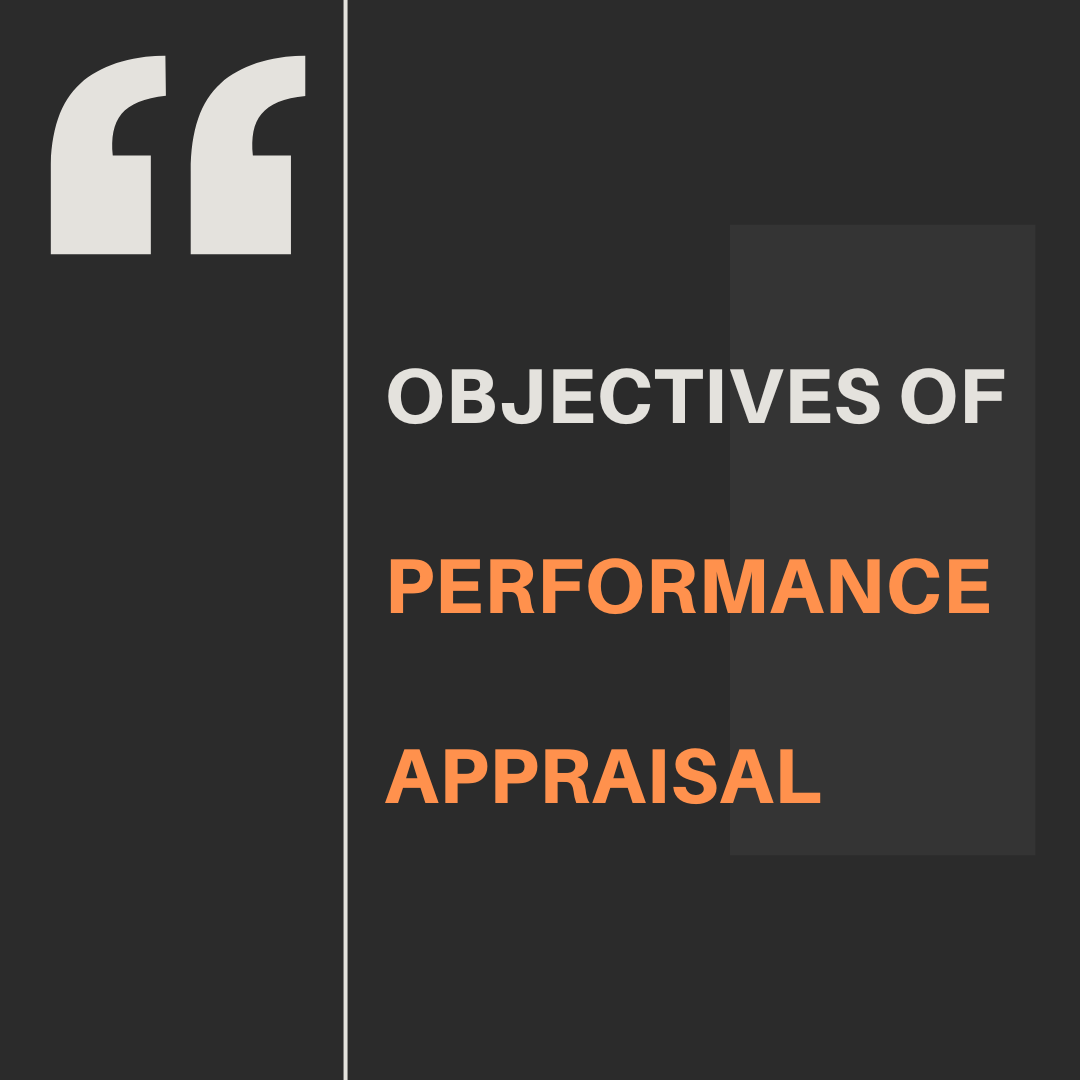Performance appraisals are a critical component of human resource management (HRM) that involve evaluating an employee’s job performance and productivity. The objectives of performance appraisal go beyond simply assessing how well an employee performs. They also encompass a range of goals designed to improve organizational efficiency and employee development. In this article, we will delve into the various objectives of performance appraisals, including specific examples and the scope within which they operate.
7 Objectives of Performance Appraisal
- Employee Development:
- Goal: Identify strengths and weaknesses to create personalized development plans.
- Example: An employee may receive feedback highlighting their strong analytical skills but pointing out a need for improvement in communication. This feedback can then be used to design a training program to enhance their communication skills.
- Organizational Planning:
- Goal: Provide data for making informed decisions about promotions, transfers, and terminations.
- Example: Performance appraisals can help identify high-performing employees suitable for leadership roles, thus aiding in succession planning.
- Compensation Management:
- Goal: Inform salary adjustments, bonuses, and other incentives based on performance.
- Example: An employee who consistently exceeds performance targets may be considered for a salary increase or performance bonus.
- Feedback Mechanism:
- Goal: Offer constructive feedback to employees about their performance.
- Example: Regular performance reviews can provide employees with insights into their job performance, helping them understand what they are doing well and where they need to improve.
- Motivation and Morale:
- Goal: Motivate employees by recognizing and rewarding high performance.
- Example: Recognizing an employee’s hard work and achievements during a performance appraisal can boost their morale and encourage continued high performance.
- Legal Compliance:
- Goal: Maintain documentation that can support employment decisions in case of legal disputes.
- Example: Detailed performance appraisals can provide evidence to justify decisions related to promotions, terminations, or layoffs, ensuring they are based on objective criteria.
- Training Needs Assessment:
- Goal: Identify areas where employees require additional training or skill development.
- Example: If multiple employees show weaknesses in a particular area, such as using a new software tool, the organization can arrange a training session to address this need.
Objectives of Performance Appraisal in HRM
In the context of HRM, the objectives of performance appraisal are integral to managing human resources effectively. These objectives include:
- Aligning Employee Goals with Organizational Objectives: Ensuring that employees’ personal goals align with the broader goals of the organization.
- Enhancing Employee Engagement: Engaging employees by involving them in the appraisal process and making them feel valued.
- Improving Communication: Establishing a clear channel of communication between employees and management.
- Supporting Career Development: Helping employees map out their career paths within the organization.
Performance Appraisal Objectives Examples
- Example 1: An organization might set an objective to identify future leaders. Through performance appraisals, they can evaluate employees’ leadership potential and identify those who could be groomed for higher management roles.
- Example 2: A company may use performance appraisals to identify gaps in technical skills. By assessing employees’ technical abilities, the organization can pinpoint areas where additional training is needed.
Goals and Objectives for Appraisal Examples
- Example 1: Improve customer satisfaction ratings by 10% over the next year by enhancing employees’ customer service skills.
- Example 2: Reduce project completion time by 15% by identifying and addressing inefficiencies in the project management process.
Self Appraisal Objectives Examples
- Example 1: Enhance my public speaking skills by attending two workshops within the next six months.
- Example 2: Improve my time management by using productivity tools and techniques to reduce missed deadlines by 20%.
Scope of Performance Appraisal
The scope of performance appraisal encompasses various areas within an organization, including:
- Individual Performance: Assessing an employee’s overall job performance, including productivity, quality of work, and adherence to deadlines.
- Team Performance: Evaluating how well employees work together as a team and contribute to team goals.
- Managerial Performance: Assessing the effectiveness of managers in leading their teams, including their ability to motivate, communicate, and achieve objectives.
- Organizational Performance: Using aggregated performance data to assess the overall health and productivity of the organization.
Conclusion – Objectives of Performance Appraisal
Performance appraisals play a crucial role in the management and development of employees within an organization. By understanding the objectives of performance appraisals, HR professionals can design appraisal systems that not only assess performance but also contribute to employee growth, organizational planning, and overall business success. Whether it’s for providing feedback, informing compensation decisions, or identifying training needs, the objectives of performance appraisals are diverse and integral to effective human resource management.
